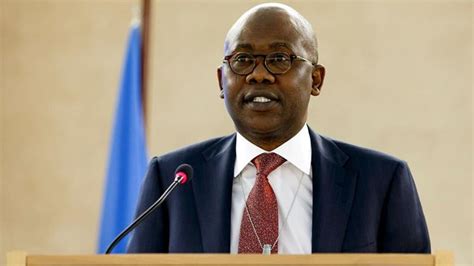A former Attorney General of the Federation and Minister of Justice, Michael Aondoakaa, found himself at the center of a legal storm involving Sunrise Power and Transmission Company Ltd and the Federal Government of Nigeria. The arbitration proceedings were unfolding at the International Chamber of Commerce (ICC) in Paris, France when Mr. Aondoakaa made a pivotal decision not to testify.
Unraveling the Controversy
Reports swirled claiming that Mr. Aondoakaa abruptly departed from Paris after submitting a witness statement supporting Sunrise’s position. Speculations suggested that his return to Nigeria was orchestrated by President Bola Tinubu, implying government interference to manipulate the proceedings in favor of Nigerian authorities.
Mr. Aondoakaa vehemently denied these allegations, clarifying that his choice not to testify stemmed from personal reasons rather than external pressure or intimidation as insinuated in various media accounts.
A Closer Look at Mr. Aondoakaa’s Stand
In an official statement released, Mr. Aondoakaa debunked the notion that government coercion influenced his decision-making process. He emphasized that he was never coerced or approached by any Nigerian official regarding his participation in the arbitration case with Sunrise Power.
Explaining further, Mr. Aondoakaa highlighted that while he initially prepared a witness statement due to references made during the proceedings, upon reflection on the broader context of the case, he opted out considering its non-crucial relevance.
The Intricacies of Legal Maneuverings
The legal tussle between Sunrise Power and Transmission Company Ltd and Nigeria revolves around contractual disputes surrounding the Mambilla Hydropower Project in Taraba State—a project marred by controversies since 2017.
Sunrise Power alleged breaches by Nigeria under a 2003 agreement pertaining to project execution rights which led to them seeking damages worth $2.354 billion through arbitration channels.
To settle this protracted conflict, a $200 million agreement was reached between Sunrise Power and Nigerian authorities; however, subsequent delays in fulfilling financial obligations resulted in fresh litigations demanding more significant compensations amidst intricate funding dynamics involving China Exim Bank contributions.
Expert Analysis: Deciphering Legal Dilemmas
Legal experts opine that such complex international arbitrations often unveil underlying power dynamics between private entities and sovereign states. The intricacies extend beyond mere contractual obligations into geopolitical realms where negotiations intertwine with national interests and financial considerations.
Additionally, cases like these underscore challenges faced by governments handling infrastructural agreements with foreign partners amid evolving economic landscapes marked by shifting alliances and priorities.
In conclusion, Michael Aondoakaa’s stance sheds light on multifaceted dimensions within high-stakes legal battles where individual choices can have ripple effects on global business environments fraught with uncertainties.

